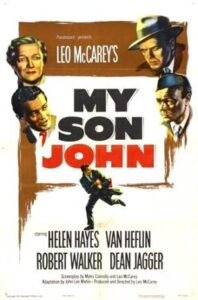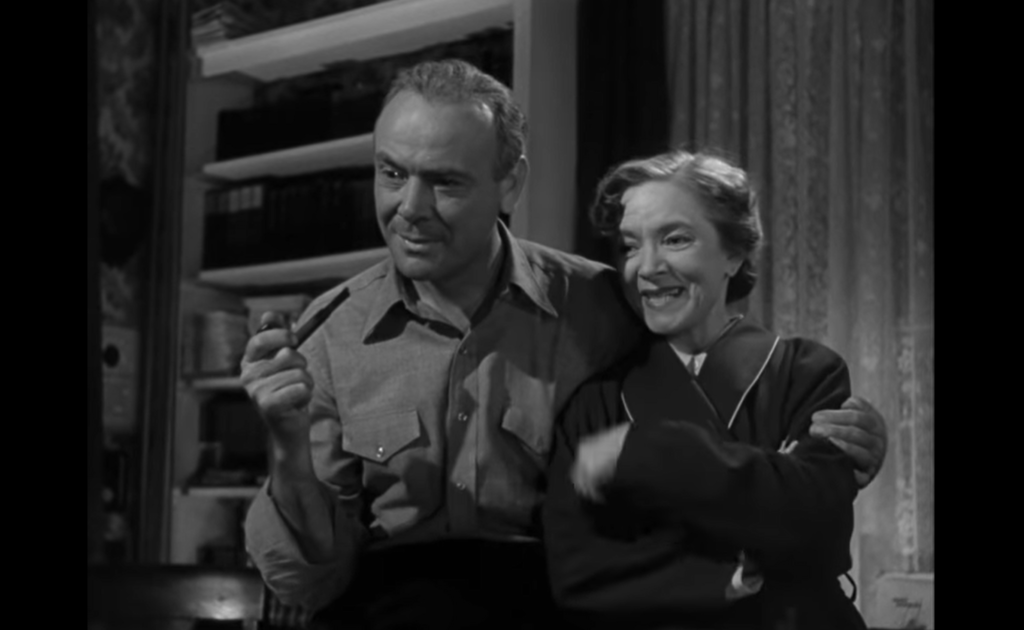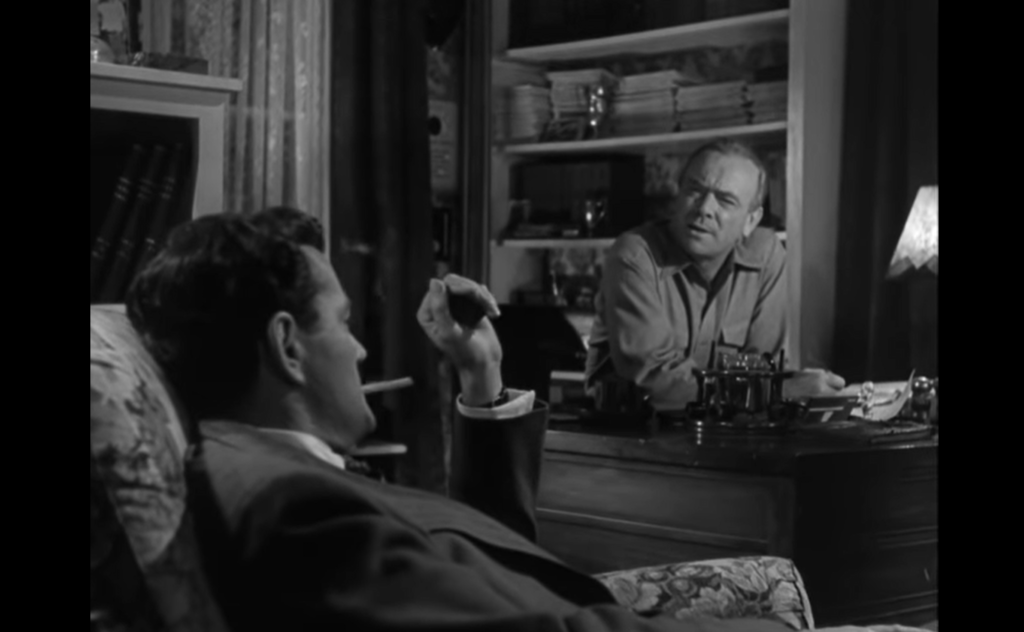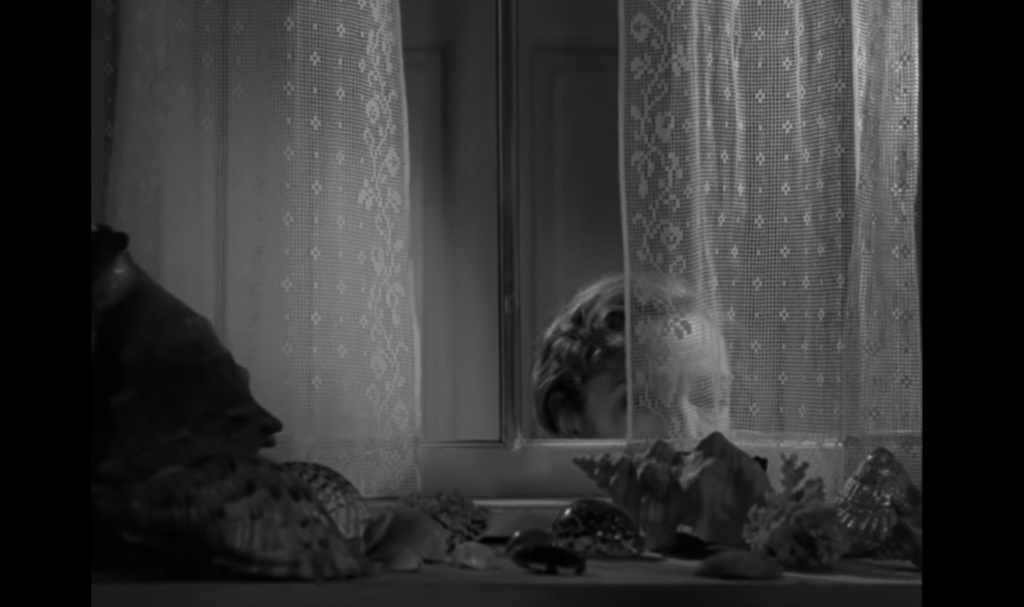My Son John (1952)
“What’s happened to my boy?”
|
Synopsis: |
|
Genres, Themes, Actors, and Directors:
Review: — a phenomenon that’s never gone away, and is perhaps at a current zenith. Hayes’ performance (her first on-screen in nearly two decades) is heartwarming and natural; indeed, all the actors were apparently asked to improvise, with a resulting authenticity that feels rare in a film of this kind (though apparently it drove Walker crazy; see TCM’s detailed article for more information on this and other aspects of the film’s production). Unfortunately, the storyline about the Red Scare as an omnipresent force in the hearts and minds of small-town America suffers from lack of clarity and/or credibility in a couple of key areas — primarily the “coincidence” between Heflin’s “accidental” meeting with Hayes and Jagger and his true identity, as well as Walker’s critical involvement with an unseen female character shown only in a newspaper article. Meanwhile, the kludging in of footage of Walker from Strangers on a Train (1951) is decidedly jarring, as are (laughably so) the final moments taking place in a university hall. Again, this is too bad, since the film otherwise possesses some enduring power as a tale of generational divides, parental suffering, and Communist hysteria. Redeeming Qualities and Moments: Must See? Links: |





One thought on “My Son John (1952)”
First viewing. Skip it. It’s almost impossibly dull… as well as heavy-handed, static and dripping with murky / misguided patriotism.
Of course, I’m mostly not a fan of McCarey films – and the TCM article enlightened me a bit more re: why. I was unaware that he was ultra-conservative but that doesn’t surprise me. His films often smack of the über-sobriety and pompousness of a right-wing sympathizer. (His frankly boring and adoringly sentimental glorification of the Catholic church doesn’t win him any points with me either.) In the case of this particular film, I agree with Walker’s gut reaction about the script being “overwrought propaganda”. (Walker’s character is meant to legitimize the terror of Joseph McCarthy.)
This is – understandably – a largely forgotten film.